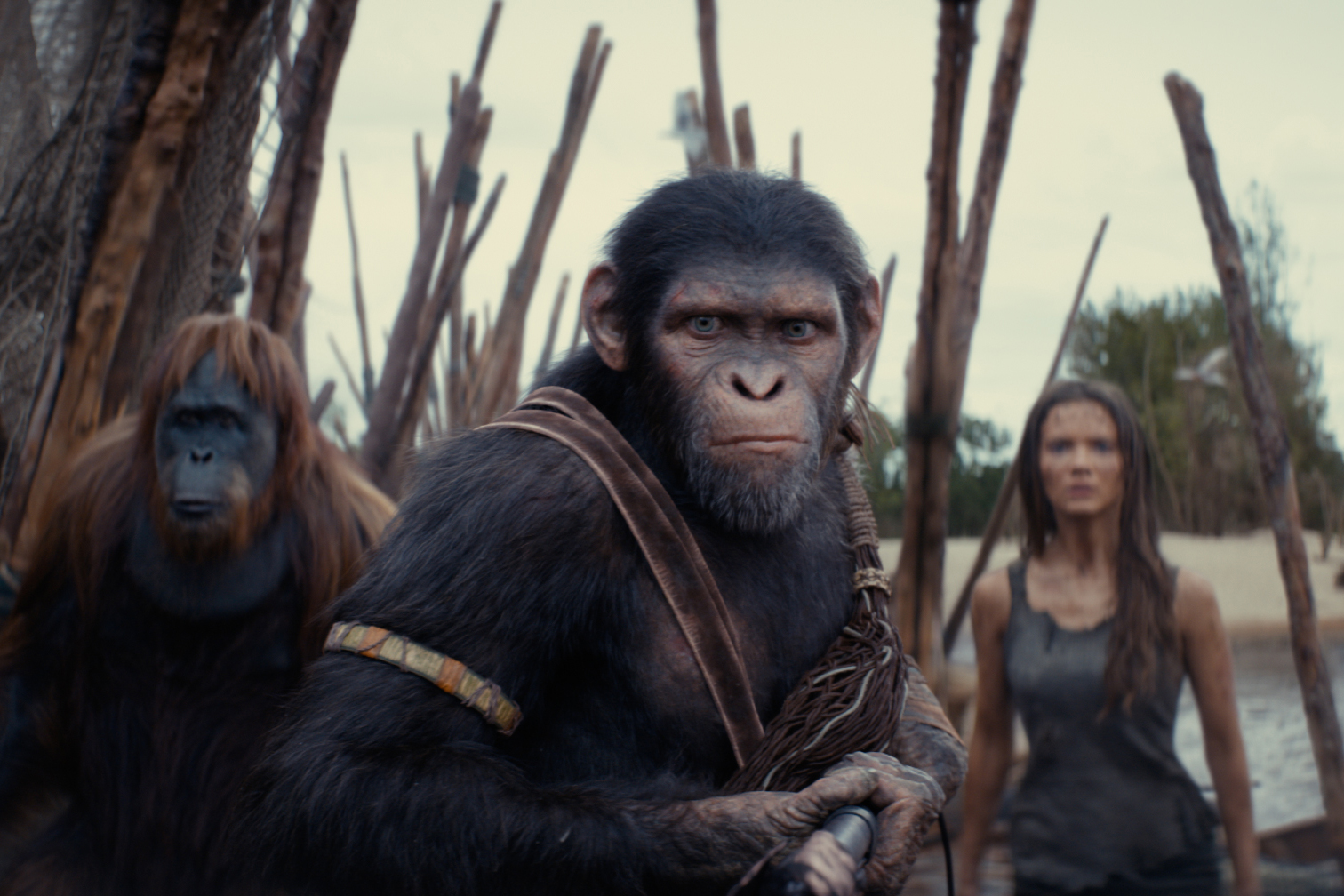With filmmaker Matt Reeves concluding his work on the Planet of the Apes reboot saga, the anticipation for a new chapter in this universe was palpable. Enter writer Josh Friedman (Spielberg’s War of the Worlds, Avatar: The Way of Water) and director Wes Ball (The Maze Runner Saga). These two filmmakers have crafted a new Apes installment that not only picks up where Reeves’ last film left off but also propels the franchise into a thrilling, uncharted future.
Three hundred years after the last installment, apes are still the planet’s primary and dominant intelligent species, while any surviving humans have gone into hiding. The movie begins by following a humble clan of eagle-raising chimpanzees who are content with keeping to themselves and not venturing outside their mostly safe territory. Young Noa (Owen Teague) is eager to follow in his father Koro’s footsteps as a skilled trainer of eagles who helps the chimpanzees survive and thrive in the wilderness where they live. However, the safety and comfort of the eagle clan eventually get challenged by some violent forces.
When a mysterious human scavenger (Freya Allan) infiltrates the eagle clan’s village, her presence attracts the attention of the more violent clan of apes led by King Proximus Caesar, an overly ambitious chimp who craves further power and dominance over all apes and humans. Proximus’ soldiers attack the village, burn it down, and kidnap nearly all of the surviving chimps. Noa manages to survive and hopes to rescue his family and friends, but he also seeks vengeance for those who have fallen during the raid.
Though not quite as extraordinary or powerful as Reeves’ films, this new Planet of the Apes installment is still exceptional, exciting, and moving in unique ways. Friedman and Ball’s shared vision further develops the Apes universe with riveting and inspired storytelling. Much like its predecessors, CGI continues to improve in some mind-blowing ways. It gets to the point where it is easy to forget that one is watching computer-generated characters rather than real apes.
Of course, the cast who perform the motion capture and voice the apes bring much heart to these visually artificial characters. I was impressed with the work of Owen Teague, Peter Macon, Lydia Peckham, Travis Jeffrey, Sara Wiseman, and Neil Sandilands, who all perform the main characters of the Eagle clan. The real standout is Kevin Durand, who is outstanding as King Proximus Caesar, a mad and intense leader who will stop at nothing to get to some powerful weaponry he believes remains in an old human vault. I also enjoyed the performances by actors portraying humans, particularly Freya Allan and William H. Macy, who portrays a man tasked with educating Proximus Caesar’s apes in the ways of humans.
Kingdom of the Planet of the Apes is now in theaters and is a worthy successor to the Caesar trilogy. The filmmakers obviously love the previous films and lay the groundwork for further installments. However, they do so by developing a smart and moving story.
